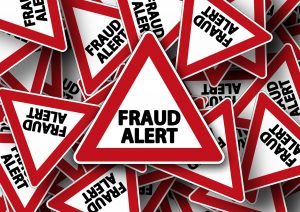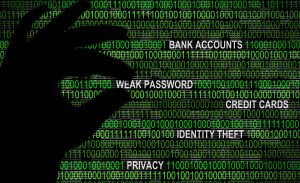People’s Guide to Financial Identity Theft Protection

Is Renting Better Than Owning—for You?
07/11/2024
Can Inquiry “Bumpage” and “Choppage” Help Your Credit?
07/17/2024Identity theft is no laughing matter. When your identity is stolen, it can affect your entire financial life, from your credit to your ability to apply for loans. You want to make sure that you’re protected from identity theft.
This can spell terrible trouble for your long-term finances. What’s worse is you might not even know your identity has been taken until you’re applying for credit or a debt collector comes knocking on your door.
Key Financial Identity Theft Basics
At its core, identity theft happens when someone uses any of your personal information without your permission. When someone steals your identity, they can use it to rent apartments in your name, get a loan, or open a credit card. In some circumstances, they might be able to access your financial statements and bank accounts.
For more information about identity theft, visit the Federal Trade Commission’s website or the Consumer Financial Protection Bureau’s website.
How Does Identity Theft Happen?
Identity thieves are tricky about how they find information. According to Experian, they could do things like:
- Dig through the trash looking for personal information
- Going through old electronics looking for information
- Using rogue Radio-Frequency Identification readers
- Stealing information by using malware software
- Hacking into computers to access personal information
- Pretending to be a trusted organization
Make Sure You’re Vigilant About Identity Theft
Watch for warning signs. If a bill doesn’t come in the mail on time, or your credit card statement is a bit wonky, these might be signs that your identity has been stolen. Other signs include denials of credit you didn’t apply for and calls for purchases that you didn’t make.
What to Do if You’ve Been a Victim of Financial Identity Theft
If you’ve been a victim of financial identity theft, there are things that you can do to protect yourself from financial ruin.
First, you want to call the fraud department of the bank, companies, and any other account that might have been compromised. You’ll want to tell them that your identity has been stolen and ask them what steps you need to take in order to protect your account. More than likely, they’ll help you dispute the charges and freeze your compromised accounts.
Second, you’ll want to let the three credit reporting agencies know what happened. It would also be a good idea to ask for a free report to check to see if any fraudulent accounts have been opened in your name. By law, the first agency you contact is required to contact the other two, so you only need to call one agency.
- Equifax — 1-800-349-9960
- Experian — 1‑888‑397‑3742
- TransUnion — 1-888-909-8872
This is crucial because it requires businesses to verify your identity before issuing you new credit. The alert is active for a year, but you can renew it for up to seven years.
Third, change all your passwords, even on accounts that might not have been compromised. Use a unique password for all your accounts.
Fourth, let your police department know so you can file a police report.
Fifth, contact the Federal Trade Commission to report the identity theft. They’ll help you to create an identity theft recovery plan.
Sixth, review your credit reports from the three agencies to make any corrections that you need to in order to fix your credit report. You’ll be able to see accounts that were opened in your name. Let the bureaus know you didn’t open those accounts. You can also call the businesses and close those accounts.
Seventh, go through all of your bank statements. If there are unauthorized charges, call your bank or credit union to dispute the charges. You can usually obtain a court order to help the banks clear your name.
I know this seems like a lot. But going through these steps is better than hiding from the problem. Ask your support system to help you go through these steps if you’re overwhelmed.
What to Know About Credit Freezes and Fraud Alerts
Credit freezes and fraud alerts are different but they serve similar purposes. Credit freezes can be placed by anyone on their credit reports, even if their identity hasn’t been stolen. A freeze is helpful because it restricts access to your credit reports.
What does this mean? It’s simple. You can’t open any new accounts, but neither is someone impersonating you. If you do need to open a new account, you can temporarily lift the credit freeze before putting it back on. In case you’re worried, you’ll still be able to apply for jobs, rent apartments, and buy insurance without lifting or removing it.
Your daily life can continue on, but you don’t have to worry about someone coming in and opening credit in your name. As a note, you’ll need to contact each bureau separately for this to ensure a freeze on all reporting agencies. But it’s free for all three bureaus.
Meanwhile, a fraud alert is what you place when your account has been compromised by someone. When you report to a credit bureau, the bureau will then report to the other two. And you’ll get a free credit report from each to check and ensure your credit is still up to snuff. Your fraud alert will last one year. But you can renew it for up to seven. Similar to the credit freeze, this process is free to the consumer.
Why You Should Understand and Beware of CPN Numbers
CPNs are touted as the way to have a “clean slate” when it comes to bad credit. But they’re not all benign as one might think. The Social Security office does not authorize CPNs and neither does the IRS. Instead, these numbers are obtained by businesses in one of two ways.
- These are stolen Social Security numbers. They’re usually stolen from children, elderly, or incarcerated individuals who might not be monitoring their credit.
- The numbers are new, fake Social Security cards that haven’t been originated by the U.S. Government yet.
According to the FTC, “Consumers who lie on a credit application, misrepresent their Social Security numbers, or obtain an Employee Identification Number from the IRS under false pretenses violate federal criminal laws.”
This means that if you try and use a CPN instead of your Social Security number, you’re violating federal law. You could face time in prison if you use a CPN, even if you didn’t know that it was illegal – because you are participating in identity theft.
How to Avoid Getting Involved in CPN Scams
The best way to avoid getting involved in CPN scams is to not use them at all. Period.
Lenders will see that you’re using a fake Social Security number because they have other ways to verify your identity. They can report you to the authorities and deny you credit. You don’t want to get caught in a scam that could harm your reputation and ability to participate in life.
Moral of the story: Don’t use a CPN number. You could be committing identity fraud, and depending on your state could result in both jail time and financial penalties.
How to Prevent Financial Identity Theft
 U.S. News has 10 ways to prevent identity theft that I think are very helpful in this situation.
U.S. News has 10 ways to prevent identity theft that I think are very helpful in this situation.
- Freeze your credit. Freezing your credit prevents potential accounts from being opened in your name. You don’t just have to do this if your information has been stolen. You can do it as a precursor to any identity theft to make it harder for people to access your information.
- Collect mail daily. Thieves can steal your mail and use the information they find to open accounts in your name. Collecting the mail daily means there’s less of a chance of this happening. If you’re on top of getting your mail, there’s less of a chance of it getting pilfered.
- Review credit card and bank statements regularly. Check to ensure that there are no weird purchases on your account. Identity theft often starts with small purchases that you don’t notice and then escalates into bigger purchases. If you’re checking your statements regularly, you’re more often
- Shred documents containing personal information before disposing of them. People might go through your trash to find personal information they could use for identity theft or fraud. Instead of giving them access to that information, shred your account statements, anything with your Social Security number on it, and anything else that you wouldn’t want prying eyes to find.
- Create unique passwords for all your accounts. If you’re like me and have trouble memorizing multiple passwords, you can use a password manager to help you maintain the integrity of your account. You want your passwords to be at least 15 digits long because that’s harder for hacking systems to guess. And you want every password to be different so that if they have access to one bank account, they don’t have access to your other accounts as well.
- Review credit reports annually. Reviewing your free reports every year gives you a chance to see what accounts you have in your name. If there are any weird accounts, you can start the process of freezing your account and mitigating any credit damage that has occurred.
- Install antivirus software. Antivirus software will look for any attempts at malware and spyware that might be lurking on your computer. If it finds them, it’ll let you know and then attempt to wipe the virus off of your computer, phone, or iPad.
- Enable Two Factor Identification on as many accounts as you can. Two Factor Identification, also known as 2-FA, is a way of locking your accounts even with a password. Usually you have to type in your password, and then your account will send a six digit code to either your email or your phone number. You’ll then have to enter that code to access your account.
- Wipe electronics before donating. If you don’t wipe your electronics, you might leave valuable information on them that could fall into the wrong hands. Wiping laptops of information is crucial before donating them because you don’t want anyone to have access to saved passwords – or worse – your password manager. Wiping your laptop is as easy as restoring it to factory settings. If you’re unsure how to do this, there are companies, like Geek Squad, who can help.
- Opt out of pre-screened credit card offers. Sometimes banks will send you pre-authorized credit card offers to try and get you to use their products. If you get one of those, don’t throw it away. Instead, shred it. Someone could find it in your mail and then activate it on your behalf before spending tons of money that you don’t have. You don’t want this happening, which is why shredding the documents is so important.
Identity Theft Insurance Plans—Are They Worth It?
 Most people purchase identity theft insurance thinking that it’s going to protect them from monetary losses that occur during the identity theft debacle if it happens; however, that’s not the case. In most circumstances, identity fraud insurance helps you clear your name of any wrongdoing the thief might have done in your name. And in most policies, you have to pay a deductible before any of the insurance kicks in.
Most people purchase identity theft insurance thinking that it’s going to protect them from monetary losses that occur during the identity theft debacle if it happens; however, that’s not the case. In most circumstances, identity fraud insurance helps you clear your name of any wrongdoing the thief might have done in your name. And in most policies, you have to pay a deductible before any of the insurance kicks in.
Instead of spending money on insurance that isn’t really helpful, it’s better to follow the steps in this guide and protect yourself from identity theft. Create unique passwords, use 2-FA for as many accounts as possible, and freeze your credit. These steps, and the rest above in the guide, are going to be more helpful when protecting you from identity fraud than identity fraud insurance.
If you do decide to purchase identity fraud insurance, make sure you research your options. Go with a well-known company that has plenty of authenticated reviews online. The last thing you want to do is give your information to a shady company that’s acting as identity theft insurance but is actually going to steal your identity.
Financial Identity Theft FAQs
How common is identity theft?
Identity theft affects 15 million people every year, totaling 50 million dollars in financial damages to the economy. However, it’s important to note that the individual is usually not out a considerable amount of money and the damages done by identity fraud are usually not permanent.
How long does identity theft stay on your record?
At first, the initial fraud alert will be on your record for 90 days. And then an extended fraud report will stay on your record for 7 years. You have to file for these alerts on your account to ensure that they go through. Report to one of the credit bureaus, and it will report to the other two as required by law.
What is the difference between identity theft and identity fraud?
Identity theft is when your identity is stolen to create a new account and identity fraud is when someone misuses one of your existing accounts.
What information should I keep secret to avoid identity theft?
Safeguard any sensitive information, like bank accounts, Social Security numbers, credit cards, and other financial statements.
Can someone get sent to jail for identity theft?
The penalty changes between states, but in Texas theft is up to 2 years in jail and a $10,000 fine. Check your state laws to see how to press charges if you’ve been the victim of id




